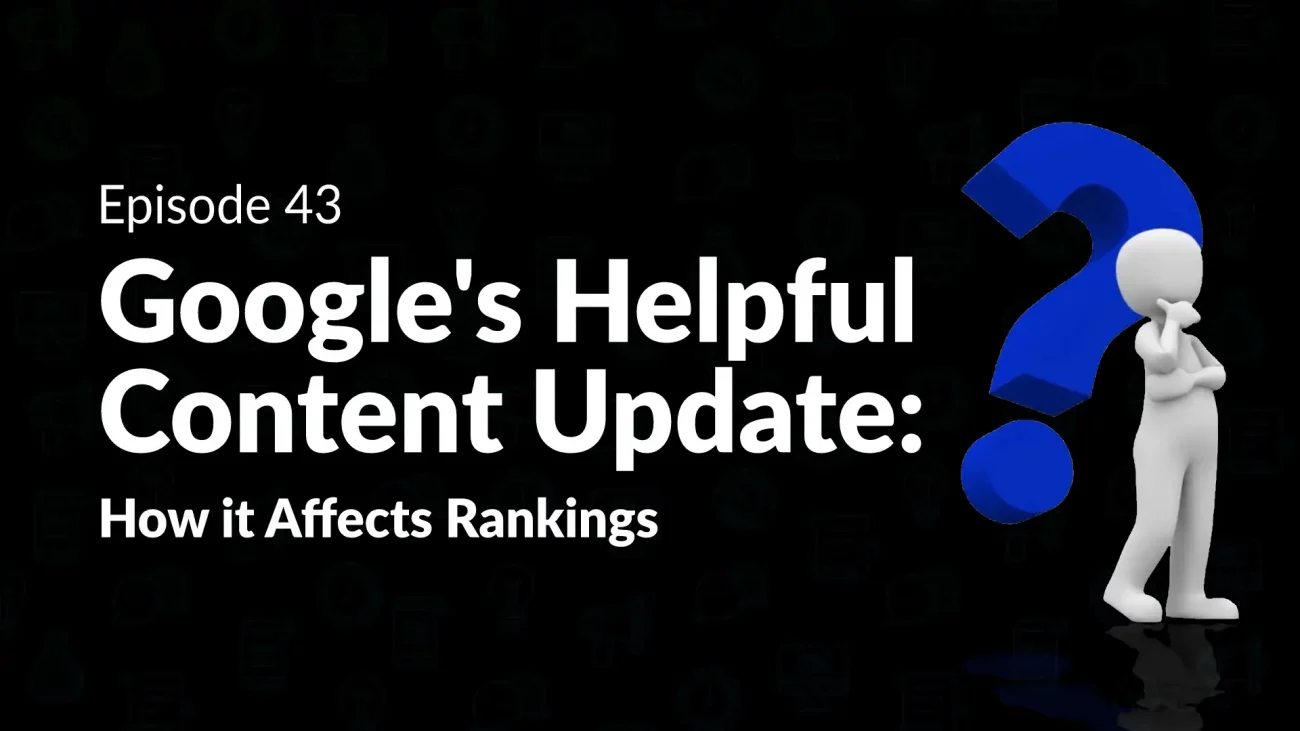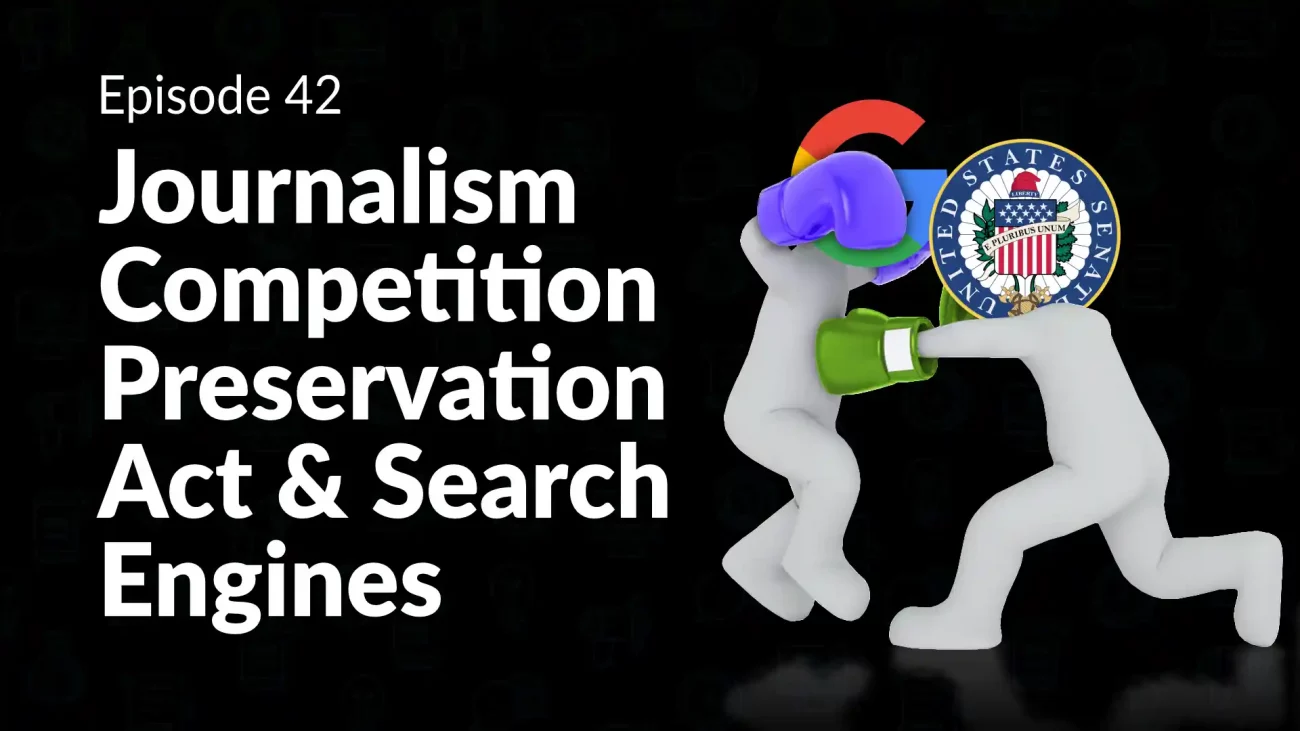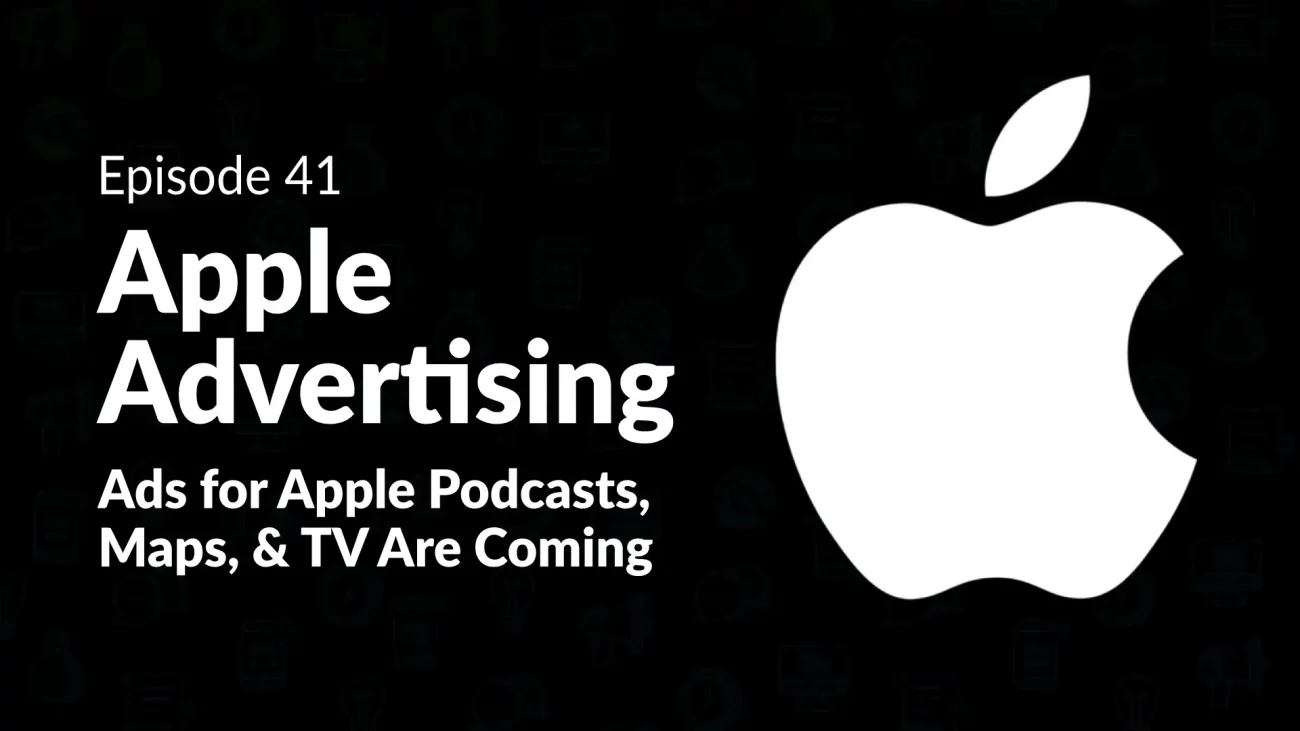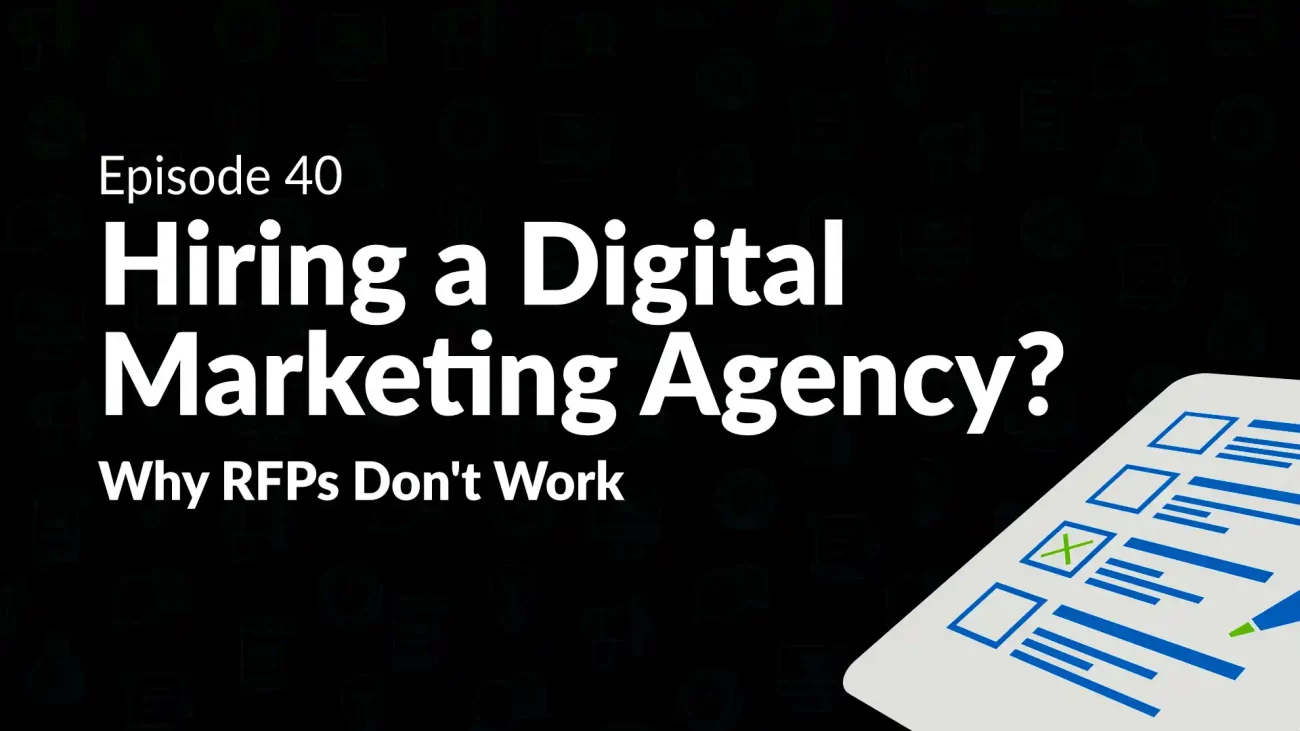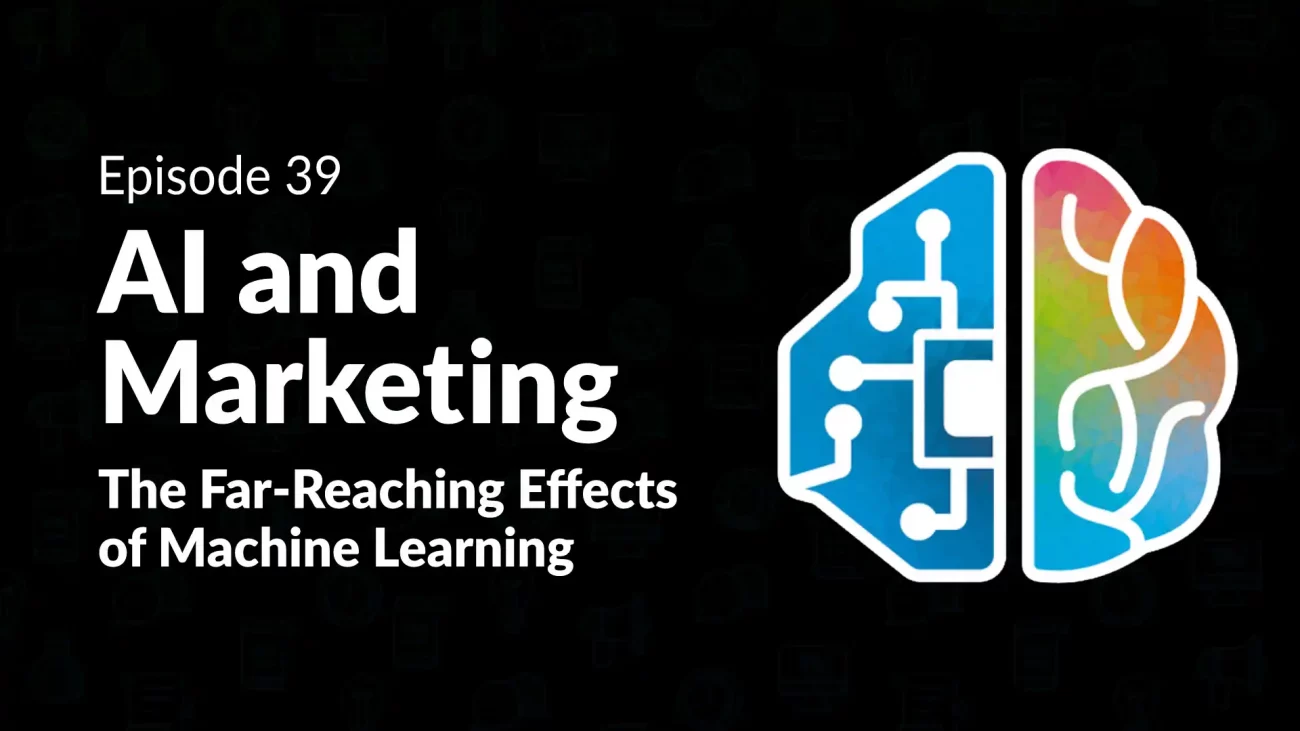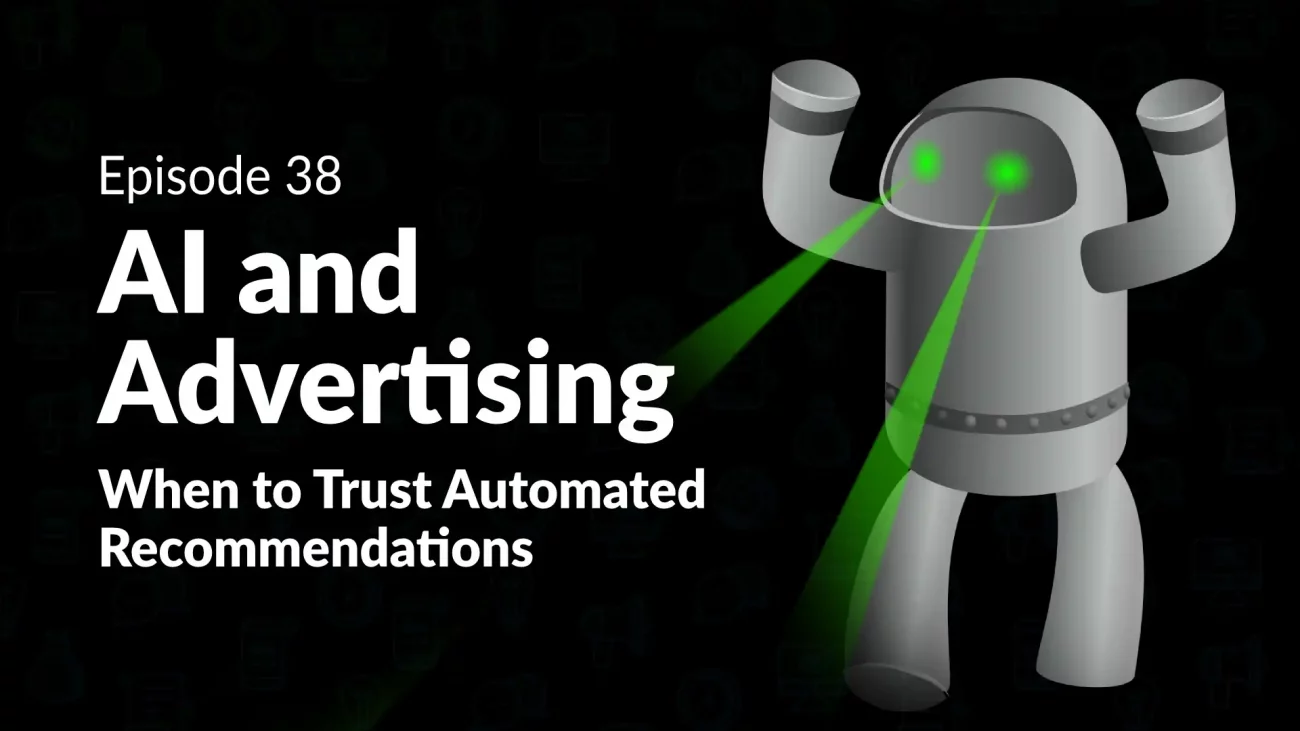Episode 6: Google Ads Saying Goodbye to Expanded Text Ads
In this episode, Hans and Devin discuss Google’s decision to shutter their Expanded Text Ads in favor of more automation initiatives.
Transcription:
Devin:
You’re listening to Digital Marketing Mondays. Each week we bring you new and exciting content from around the marketing industry and help give you, the marketer, insights into what’s happening. We’ll offer our advice and share some takeaways to help you develop better strategies for your marketing. Ideally, this will also help you improve your ROI as well. So with that, let’s tune in to this week’s episode.
All right, Hans, so what do we have this week?
Hans:
Okay. Devin, I saw an announcement that Google came out with saying that they plan to eliminate something called expanded text ads in 2022.
Devin:
Yeah.
Hans:
So they’ve given us some fair warning. What does that mean? What exactly are expanded text ads that Google is doing away with?
Devin:
Yeah, loaded question. Expanded text ads are … If you’re a Google Ads advertiser you’re probably familiar with them, they are your standard ads that you would typically write for. They were called expanded text ads because historically, way back when Google Ads was just getting started, you previously had two headlines and one description line, and that was the limitation. It was 30 characters per headline and then 90 characters per description line.
Devin:
Eventually, and I don’t recall the exact dates offhand, but it’s been several years now where they had expanded text ads. And that was three headlines, three headlines, and two description lines. And those worked fairly successfully. But I think, like what they’ve been seeing with Google Search updates overall, their automated engine in the background thinks that they’re smarter than most advertisers. And so they’ve had a tendency to rearrange them anyways. A couple of years ago they announced what they call responsive text ads. And that is, you can put in up to 15 headlines and up to five description lines, and then basically Google will automatically sort them for you.
Devin:
So those are the different types of Search ads that are available inside of Google. And yeah, the expanded text ads is something that, if you’ve been advertising in Google for a while, you know all about those and you craft typically your messaging around having three headlines, two description lines.
Hans:
Let’s see, if I understand this correctly then what you’re saying is that with the expanded text ads, you could determine what the headline would say, what the description line would say. And you could match the two to one another so that you could make the whole ad, the pieces of it, be integrated together, right?
Devin:
Yeah.
Hans:
Because it would show up the way you had written it essentially.
Devin:
Right.
Hans:
Okay. And then if you go to this other model, which is where you write a whole bunch of headlines and descriptions, it picks and mixes and matches them anyway it wants to and you don’t really have control over that. Is that what you’re saying?
Devin:
Generally, yes. Google, in their infinite AI wisdom, thinks that they’re smarter than you. And so their AI will, in responsive Search ads, serve up combinations of headlines and description lines based on whatever produces the best CTR.
Devin:
The problem with that is that obviously it’s AI and it doesn’t have a ton of contextual reference for what shows up. Advertisers do currently have the capabilities to actually pin headlines and descriptions. So you could say, “This headline can only show in the first position that’s available,” and Google has to respect that. So there are some ways that you can semi-manually control how headlines and descriptions appear.
Devin:
But generally speaking, you’re correct in that Google is going to reshuffle or reorganize the headlines and the descriptions based on whatever, assumably the CTR or even the conversion rate, whatever best combination will produce the best results.
Hans:
So as an advertiser, I’m going to have, or we are going to have, less control than over exactly what our ads say to people. Is that true?
Devin:
Exactly. Yeah, and I mean, this is where I really dislike the phrase that Google lives by, “Don’t be evil and do the right thing.” This feels like a stab directly at marketers because you’re taking away effectively the control that we as advertisers can have on these ads. And it’s really frustrating. Just another thing that keeps getting stacked in in Google’s effort to automate everything and get better performance.
Devin:
For some advertisers that have $100 a month to spend on Google Ads and don’t know how to do it, it’s fine. It’s a great method. But for those who are working with agencies like ours, that are paying professionals who know how to write ad copy and manage ads well, it’s definitely just another slap in the face from Google.
Hans:
Wow.
Devin:
So really, I mean, we’re going to lose a lot of control over how those ads are directly appearing. As of the date of this recording, which is September 2nd, they announced that they’re officially getting rid of the expanded text ads, starting June 30th of 2022.
Hans:
Wow.
Devin:
So yes, I mean, as advertisers, we have quite a long runway to get this sorted out, which I guess I do appreciate, for whatever it’s worth. But yeah, it’s still just extremely frustrating, as an advertiser.
Hans:
Yeah. I mean, we’ve seen things like this in the past where Google has brought about a change like this. I mean, I remember the days when I think the headline was 25 characters and then you had two 35 characters subject lines. That was way long ago. And what they did was they eventually made it so you could no longer create ads that way. But if you had ads that were like that, they would continue to run for a while and then eventually they phased those out and they wouldn’t even run anymore.
Hans:
And I suspect they may do something like this here, where at some point they’re going to basically disable your ability to create expanded text ads. But if you have expanded text ads, they may keep running for a little while, and then ultimately they’ll shut that off as well. And so you’ve got to go to these automated ads.
Hans:
Which is a problem, because one of the great things about Google that we really like is that we can create two or three different ad creatives. Run them against each other, check for things like click-through rate and conversion rates and things like that based on the ad copy. And optimize on our own and maybe even try completely different lines of copy or different approaches, and get really creative here and really catch people’s attention.
Hans:
And it sounds like that’s going away. I mean, we still have some creative input in terms of creating these big groups of headlines and subject lines, but that over time Google is just going to munch them around anyway that it sees fit. And we don’t really have creative control over what the messaging says ultimately, not to the degree we had before.
Devin:
Yeah. Yeah, exactly. I think what’s challenging is that contextually, as advertisers and we’re good at copywriting, we can control the messaging very tightly. In this case, you now have to effectively write ads and descriptions in a relatively non-contextual way, as in they need to be able to be stood alone or shown with other headlines that may contextually … They wouldn’t make sense if you rearrange them, if you move the first and the second and switch them around, they may not make sense together.
Hans:
Right, right.
Devin:
So in that way, you’re going to have to be relatively agnostic with how you write headlines or copy for them. That said, I think one of the hacks that we may or may not be able to do, and obviously look for future recordings to see this may change, but like I said earlier, right now you can pin headlines and descriptions.
Devin:
So I think a mild workaround for the time being is create versions of your responsive text ads and then just pin one headline number one, one headline number two, one headline number three. And then Google’s forces [inaudible 00:08:28] use it in that context. So as of June 30th of 2022 that may be our only option for controlling an entire ad and the ad copy together. Obviously, subject to change, Google will probably get smart and figure it out beforehand, but we’ll see.
Hans:
Yeah, yeah.
Devin:
We’ll see.
Hans:
Yeah
Devin:
I’m hopeful they don’t, because I think really it’s, like I said before, it’s just another slap in the face and they think they’re so smart over there, their AI, but really, we know that they’re not.
Hans:
Yeah, yeah.
Devin:
Yeah, it’s something that we’re [crosstalk 00:08:57] with.
Hans:
Well, there’s been an overall trend, we’re moving closer and closer every year to a point where Google says, “Okay, how much money do you want to put in? Okay, thank you. We’ll take it from here. What’s your URL, how much money you want to spend? Okay. Well, we’ll take care of this for you.” That seems to be the direction that they’re heading in.
Hans:
And in our experience I think, when we’ve seen folks who have set up their ads using Google’s automation as opposed to doing it all manually, the results aren’t as good. That’s been our experience, we’ve not seen … I mean, it’s pretty significantly worse when you let Google do the automation. So every time Google clamps down on the freedoms that we have to determine what it says and when it appears and things like that, when those things get taken away from us, usually the results of our advertising seem to get less effective. Would you agree with that?
Devin:
Yeah. Yeah, absolutely. And I think in Google’s good nature, they’re trying to figure out what are going to be some of the keywords of the ads, what’s going to work the best. But what the AI thinks is the best is not always the reality of the situation.
Hans:
Right. right.
Devin:
I think there are some scenarios where the AI probably will do just fine. A mom and pop restaurant that sells American pub food, they’re probably going to be okay if they did an automated strategy.
Hans:
Yeah. It’s simple, right.
Devin:
It’s simple, it’s simple. But when you start getting into complex, that Google has not taught their AI to understand complex yet. And I think that’s probably a core issue here. And, yeah.
Hans:
And the AI only works when you have a sufficient volume of clicks and traffic too. For someone on a tight budget that can only afford a few clicks a day, that’s not a lot of data to influence the AI anymore either.
Devin:
Right.
Hans:
That could be a problem for people who are trying to operate on a low budget. Okay.
Devin:
Yep.
Hans:
Well, I think that … Anything else to do? I think we’ve covered this, for now at least, based on what we know, I think we’ve covered it.
Devin:
Yeah. Yeah, like I said, I mean, as of September 2nd, 2021, it’s going to be a responsive ads only starting in June, and then it very well could change and they’ll probably change their mind again. Or you know what, if enough advertisers put up a fuss about it, maybe they won’t.
Hans:
Yeah.
Devin:
But unfortunately the reality is they have a monopoly on Search right now, and so they can pretty much tell advertisers whatever they want to do.
Hans:
Yeah, yeah.
Devin:
And it’s just the reality we’re contending with.
Hans:
Right. Well, if you have a relationship with somebody at Google and you don’t like this approach, be sure to let them know. I have seen Google back away from certain things in the past, where they’ve basically locked down some feature in the system and people screamed about it and then they backed off and said, “Oh, we didn’t really mean it.” So they do sometimes listen.
Hans:
Yeah, there you go. All right. Well, thanks Devin. That’s helpful to know and we can plan accordingly. And yeah, we’ll keep an eye on it. If we get some more news we’ll post another episode.
Devin:
Sounds good, Hans. Thanks everybody for tuning in. Take care.
Hans:
Take care.
Devin:
Thank you so much for tuning in. We really appreciate you taking the time out of your busy day to engage with our content. Whether you’re watching on YouTube or subscribed on our podcast apps, we appreciate you taking the time. Make sure to leave a comment down below and let us know any feedback that you have for us. We’re always watching the comments and engaging in any way that we can. So if you find this content useful, also make sure to subscribe or give it a big thumbs up. We appreciate it. Thanks so much.




